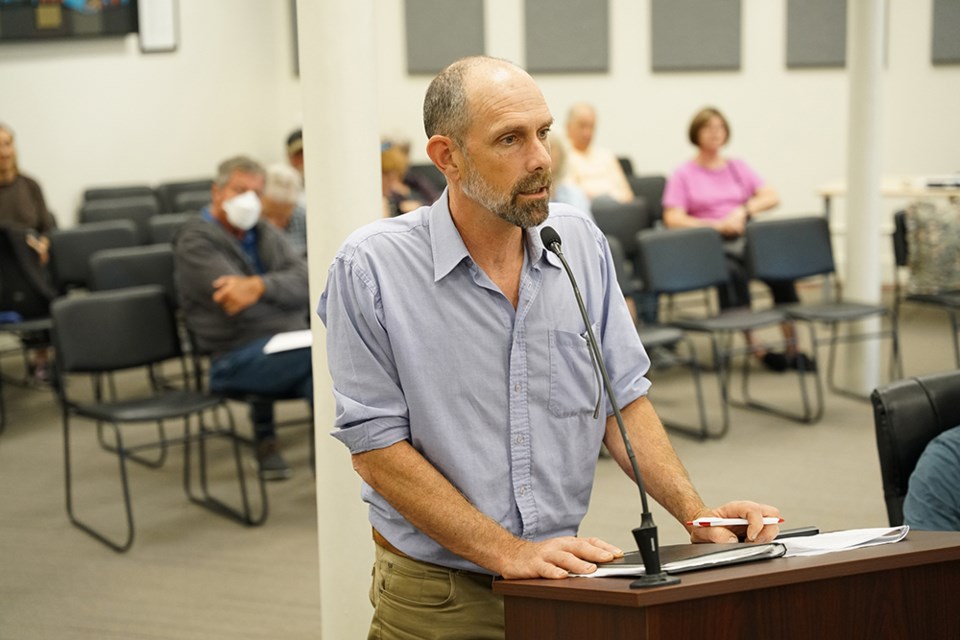City of Powell River councillors approved an application for funding for extreme temperature risk mapping, assessment and planning for the qathet region.
At the June 1 city council meeting, councillors voted unanimously in favour of applying to Union of British Columbia Municipalities for funding to carry out an extreme temperature risk mapping project.
At the May 30 committee of the whole meeting, Ryan Thoms, qathet Regional District manager of emergency services, said the provincial government has created a fund to help local governments and First Nations do extreme temperature risk assessment mapping and planning. He said it is in relation to learning that came out of the heat dome in 2021.
“With the expectations with climate change, unfortunately, this becomes the norm into the future,” said Thoms. “Our regional emergency preparedness service is recommending that we apply for the funding and collaborate as we have on several initiatives with Tla’amin Nation, the city and the regional district in a regional project.
“What’s interesting and exciting about this one has been the willingness of three health authorities to get onboard with us – Vancouver Coastal Health (VCH), Vancouver Island Health Authority and First Nations Health Authority. Given the aspect of public health in this context, that’s a great thing that we’re looking to recommend.”
Thoms said for the grant, city council endorsement is required, as well as from the Tla’amin executive council and the regional board.
According to a report by Thoms, the grant funding will provide up to $30,000 per eligible applicant, and therefore a regional collaboration including the three governments may provide up to $90,000 for the proposed project. Thoms’ report stated that the project will assess potential risks of extreme heat and develop response plans for all areas of qathet Regional District, including the city, Tla’amin Nation and all electoral areas.
City councillor Trina Isakson said the project is meant to assess risks and develop a response plan. She asked if a response plan would include recommendations for proactive municipal policies related to heating and cooling requirements in new buildings, or tree bylaws.
“Is that the level of detail we’ll get to?” asked Isakson.
Thoms said he had been speaking with the city planning department, giving them a heads-up that the project might be coming. He said they are the ones who are going to want leafy canopy over streets as a mitigative measure, for example. He said it is important to get the city to the table and to understand what is within the city’s regulatory powers.
“Part of this is going to be learning as we go and we anticipate those kinds of questions to be part of the process,” said Thoms.
City councillor Cindy Elliott asked if there would be an actual map developed through the process, with areas of concerns, or was it more of a process mapping system.
Thoms said VCH has done a fair amount of mapping through much of the region and local organizers were looking at that – if it needs to be a priority.
“We need to look more at the health authority mapping,” said Thoms. “It may be something we don’t need to do, because if you’ve seen some of the aspects coming out of the heat dome in the Lower Mainland, the mapping was quite interesting.
“We may end up with a map that looks like the Highway 101 corridor, because that’s where we have people and that’s where we have concerns. At this point, we’re still exploring it.”
Thoms said identifying vulnerable populations and response plans to help support that is going to be part of the process. He said figuring out the local governments’ and Tla’amin’s role would be part of the project.
The committee voted to send the matter to city council on June 1 for approval.

.jpg;w=120;h=80;mode=crop)

